The views expressed in our content reflect individual perspectives and do not represent the authoritative views of the Baha'i Faith.
A friend of mine who is a devout Christian once wrote to me and asked the following questions. He wanted me to answer them based on the Baha’i Writings. Below are his questions and my comments, drawing on the utterances of Baha’u’llah and the Bab.
Q1) Are we judged at the end of our lives? By whom?
Before attempting to answer this question—and any that relate to life after death—I must admit that our understanding of this subject is very limited. Although there are numerous Tablets and Writings from Baha’u’llah and ‘Abdu’l-Baha on this matter, it is still beyond our comprehension due to our limited capacity. Consider the quotation below from Shoghi Effendi:
You ask an explanation of what happens to us after we leave this world: This is a question which none of the Prophets have ever answered in detail, for the very simple reason that you cannot convey to a person’s mind something entirely different from everything they have ever experienced. —Baha’u’llah’s Teachings on Spiritual Reality, p. 110, 21.4
I guess our problem is that we always imagine the next world as a material place. And because of this, we tend to think there will be a physical location after we die, someone waiting to judge us, and some form of material reward. But if that were the case, then why does Baha’u’llah tell us that if He were to show us the world beyond, no one would want to remain in this life?
We should understand that these are spiritual states, not material ones. Baha’u’llah tells us that the soul will progress according to its capacity. Look at the writing below:
Blessed is the soul which, at the hour of its separation from the body, is sanctified from the vain imaginings of the peoples of the world… If any man be told that which hath been ordained for such a soul in the worlds of God… his whole being will instantly blaze out in his great longing to attain that most exalted, that sanctified and resplendent station… —Baha’u’llah, et al. (1983, p. 346)
As Baha’u’llah pointed out in another Tablet, there are many other worlds in other realms. And based on the above quotation, the soul—depending on its capacity—will progress, but within its own sphere. Some will occupy a higher station than others.
So to me, based on the Writings, there is no material or physical judge. Of course, what we do in this life affects our soul and makes it more refined for the next world—but in a spiritual sense.
One must remember that the purpose of this life is to prepare the soul for the next. – Universal House of Justice (n.d., p. 119).
Q2) By what rules or measure? Behavior or belief?
All the tools—call them the Ten Commandments, Twelve Principles, etc.—that are given to us by the Divine Educators (Prophets, Manifestations of God, and so on) are created to educate us and help manifest what lies hidden within. Belief without action is merely a word, and action without belief is stained with earthly or selfish desire.
The Great Being saith: Regard man as a mine rich in gems of inestimable value. Education can, alone, cause it to reveal its treasures, and enable mankind to benefit therefrom.. – Gleanings from the Writings of Baha’u’llah”, Sec. 122, pp. 259–60)
In another Tablet, Bahá’u’lláh says (I am paraphrasing) that there are hidden gems within our inner mine, and He wants only to bring them out. These are the measurements of God. Again, they are not material, but spiritual. Our actions may look physical, but their effects are spiritual. This will become even clearer when I answer the next question about heaven and hell.
Q3) Does Baha’u’llah play a role in rescuing us from condemnation?
Bahá’u’lláh and other Manifestations of God are Educators, Gardeners, Farmers. In fact, one of the names of God is Al-Zāriʿ, meaning “the one who cultivates.” Although we can never fully comprehend God and He is beyond our imagination, we know that these qualities refer to the Manifestations of God. Their role is to educate us and grow that perfect seed within.
I wouldn’t use the word “condemnation” at all, as God is Merciful and Compassionate. He wants us to reach our highest capacity and attain the loftiest stations. And His forgiveness knows no bounds. Consider the following verses from The Hidden Words:
O Son of Being!
Love Me, that I may love thee. If thou lovest Me not, My love can in no wise reach thee. Know this, O servant.
O Dwellers of My Paradise!
With the hands of loving-kindness I have planted in the holy garden of paradise the young tree of your love and friendship, and have watered it with the goodly showers of My tender grace; now that the hour of its fruiting is come, strive that it may be protected, and be not consumed with the flame of desire and passion.
So yes, the Manifestations of God certainly have a big role in our lives, but with conditions that have been laid out. As Bahá’u’lláh stated in the Kitáb-i-Aqdas, it is not enough to recognize God through His Manifestations—we must also follow and act upon Their commandments.
O Son of Spirit!
I created thee rich, why dost thou bring thyself down to poverty? Noble I made thee, wherewith dost thou abase thyself? Out of the essence of knowledge I gave thee being, why seekest thou enlightenment from anyone beside Me? Out of the clay of love I moulded thee, how dost thou busy thyself with another? Turn thy sight unto thyself, that thou mayest find Me standing within thee, mighty, powerful and self-subsisting.
Bahá’ís believe in the progressive nature of religion. That is, religion is not static, but in motion. It is not frozen in time. Each of the Manifestations of God, according to Their mission, brings new life through Their revealed Words—always suited to the capacity of the age. Nothing is truly absolute except God. Even the word absolute is inadequate to describe His station.
We are not frozen in time. When a new Manifestation appears, we are called to recognize Him or Her based on character and revealed verses.
Once, the Word of Muhammad was considered heaven. After He manifested, those who accepted His mission entered that heaven.
Q4) Does the condemnation—hell—last forever, or is there relief or rescue?
Baha’u’llah says:
Where is Paradise, and where is Hell?’ Say: ’The one is reunion with Me; the other thine own self.” Baha’u’llah (1988, p. 132)
Q5) Does one’s behavior now prepare some better than others for paradise? In other words, are there levels of enjoyment in paradise?
Everything has its own level and degree. Again, I quote the Universal House of Justice:
One must remember that the purpose of this life is to prepare the soul for the next.
Our actions and development in this life have consequences for the next, in terms of preparing the soul. A baby develops for nine months in the womb. Most of what the baby develops might seem useless while in the womb, but once born into this world, the usefulness becomes clear. It’s a simple example, but one from which we can deduce many truths.
The next world is not material—it’s a spiritual state. The Báb explains that everything has its own heaven and hell. (Paraphrased:) A stone has its own heaven and hell. When a stone is refined and shaped to reveal its potential, that is its paradise. A piece of paper attains its paradise when it is beautifully designed and written on with great skill.
This applies to us too. When we manifest our innermost truth and reach our highest potential, we attain our paradise.
So, based on the Báb’s theology, hell and heaven are conditions, not physical places. The soul will progress according to its capacity. Some will attain higher stations, and some will not—but within each sphere, they will be aware of each other. It’s like many worlds of God layered like an onion, with unlimited space within each layer.
Q6) Do we create our own hell, or does God create it?
It’s important to understand that God has given us free will. This is what distinguishes us from other creatures. Our will and actions become meaningful when done for Him. That is, when we recognize the revelation of God in all things.
The word Kullu-Shay’ (“All Things”) in the Báb’s Writings refers to this reality.
God wants us to recognize our true value, capacity, and nobility. That is why He has appointed His Educators—His Manifestations—through the ages to guide us. He wants us to reach our heaven, which is our own perfection.

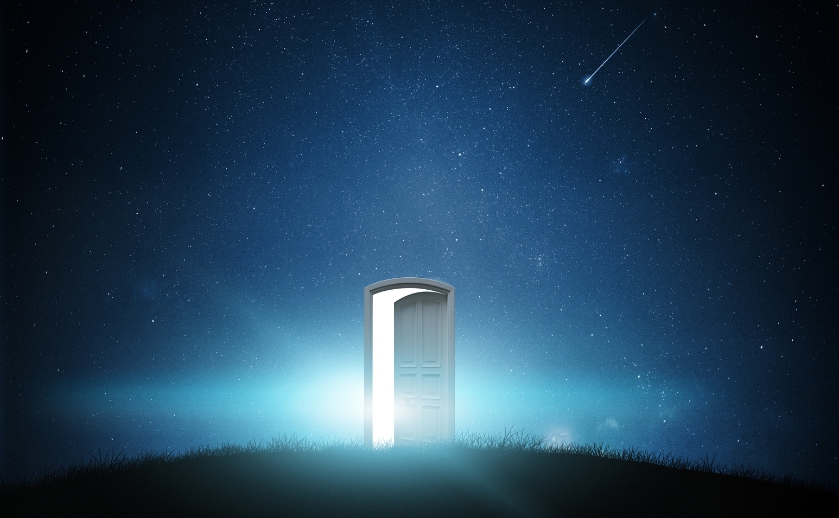




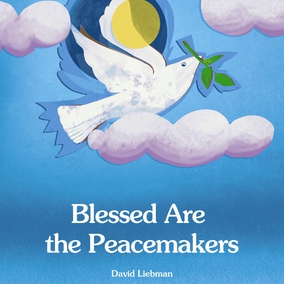
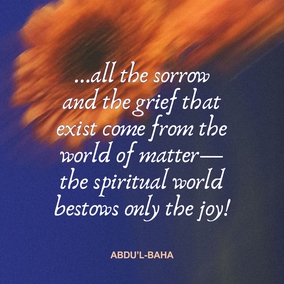


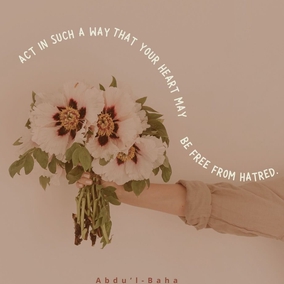
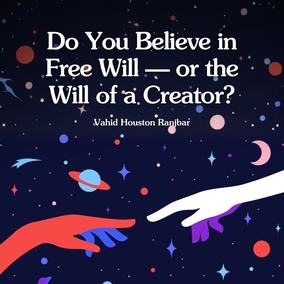
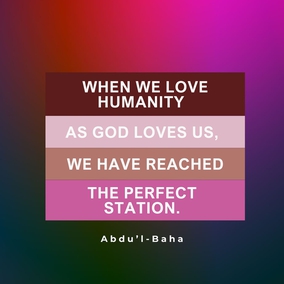


Comments
Sign in or create an account
Continue with Googleor